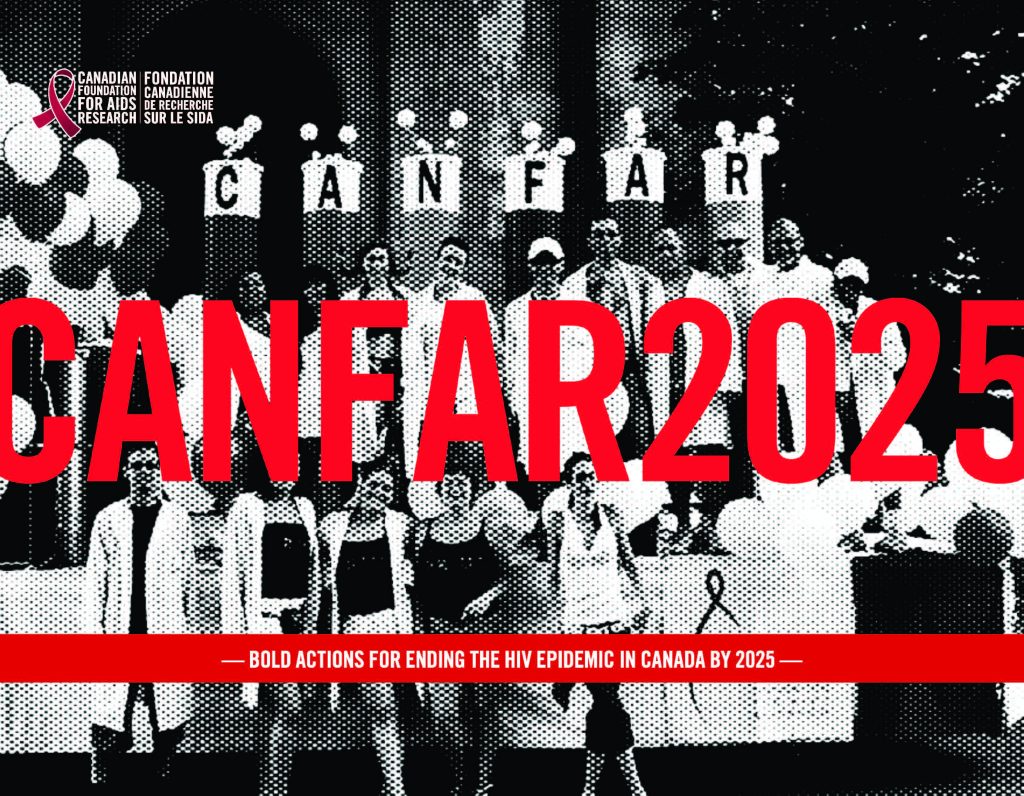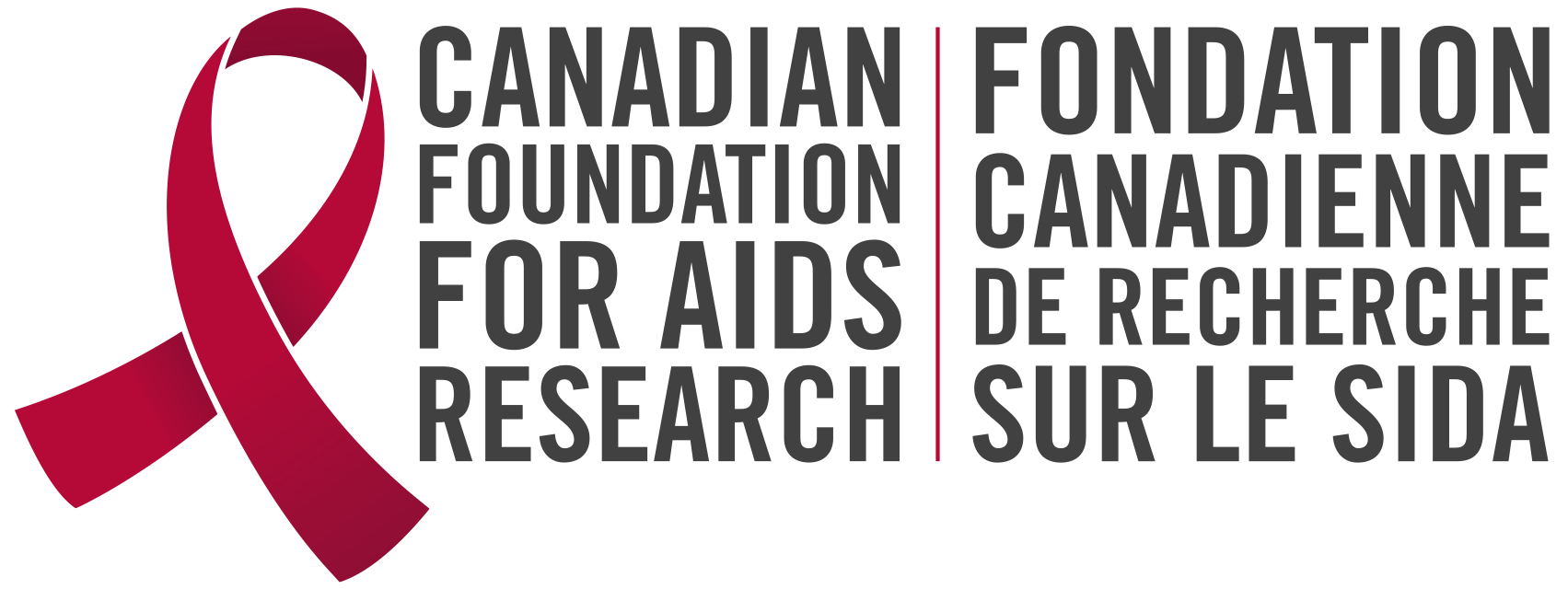
Catalyzing action in underserved communities, increasing access to HIV testing and linkage to treatment, and funding implementation projects key to achieving goal
Toronto, ON, February 7, 2024 – CANFAR, the Canadian Foundation for AIDS Research, unveils its strategic plan that responds to the significant rise in new HIV cases across Canada and aims to be a major partner to end the national HIV epidemic by the end of 2025.
Canada saw an increase of 24.9% of new HIV diagnoses in 2022 over 2021, with Saskatchewan and Manitoba leading the country’s new diagnosis rate at 19.0 and 13.0 per 100,000 – compared to the national average of 4.7. This rise in new cases has not been seen in over a decade.
The HIV epidemic in Canada has been fueled in large part by health inequalities, the reduction of testing services during the COVID-19 pandemic, a lack of comprehensive youth sexual health education, the toxic drug crisis, and a lack of culturally-appropriate testing and care. It is also estimated that about 1 in 10 Canadians living with HIV don’t know their status and have not benefitted from life-saving antiretroviral treatment. Other barriers for people to get tested without fear or judgment include stigma, racism, homophobia and transphobia.
CANFAR’s new strategic plan commits to three priorities:
Increase national awareness among key populations, through strategic campaigns in collaboration with community-based organizations from coast-to-coast;
Increase access to HIV testing and care, by funding new ways to use technology and community-based models to meet people where they are and in ways they can feel safe to get tested and connected to care and treatment.
Fund implementation research, focused on addressing health and wellbeing issues faced by Indigenous peoples, African, Caribbean and Black people, racialized women, and people who use substances and inject drugs, in addition to continued investment in scientific research.
Developed in collaboration with a task force that included guidance from select experts from institutions like the National Sexually Transmitted and Blood-Borne Infections Laboratory (Public Health Agency of Canada), the National HIV and Retrovirology Laboratories (Public Health Agency of Canada), CATIE – Canada’s source for HIV and Hepatitis C Information, the Dr. Peter Centre, HQ Toronto, Communities, Alliances & Networks (CAAN), Freddie, and COCQ-SIDA, CANFAR’s new strategic plan highlights the importance of swift and urgent attention to Canada’s growing HIV epidemic.
Scientist with the MAP Centre for Urban Health Solutions at St. Michael’s Hospital and long-time CANFAR advisor, Dr. Sean B. Rourke, says, “We have the tools and we know what we need to do to end the HIV epidemic, but as a country we need to focus on scaling and implementation. It’s all about execution. CANFAR’s new strategic plan considers the last four decades of research and discoveries, and lays out a thoughtful and outcome-driven blueprint to ensure that no one is left behind. It will ensure that anyone living with or at risk of HIV can be healthy and thrive.”
CANFAR’s Chair Andrew Pringle agrees. “I strongly believe that it is possible to end the HIV epidemic in Canada by the end of 2025. We can get there with rapid, strategic, and coordinated action.” He adds, “As a research foundation that has been here since the height of HIV/AIDS in the late 1980s, CANFAR is both a leader and a catalyst in our communities’ response to the epidemic.”
To deliver on its priorities, CANFAR is partnering with CATIE to develop national awareness campaigns to support the communities most impacted by HIV in Canada today – Indigenous peoples, African, Caribbean and Black people, racialized women, and people who use substances and inject drugs. Community campaign consultations will begin this Spring.
CANFAR will additionally fund several implementation projects in the coming years, that will focus on breaking down barriers to testing and bringing HIV testing to more communities through mobile and self-testing initiatives across Canada. Further, CANFAR is investing in programs for harm reduction and women-centered healthcare in Vancouver and Toronto, respectively. These investments are among several other initiatives CANFAR has helped fund, including I-AM.Health and I’m Ready to Know – both of which provide free HIV self-test kits delivered directly to homes or for pickup at more than 400 locations across Canada – as well as the CANFAR Express Testing Laboratory at the new HQ Toronto.
The Foundation is also set to call for submissions for its 32nd Research Cycle in March 2024, which will include the sophomore awarding of the Christopher Bunting Memorial Research Grant. This comes on the heels of the Foundation’s announcement of the recipients of Research Cycle 31, which included grants for investigating PrEP therapies in people who use substances and inject drugs and adapting women-centred HIV care models for Indigenous women living with HIV, among other investigations.
For more information and to read CANFAR’s new strategic plan, please click here. For media inquiries or to arrange an interview about how CANFAR’s new strategic plan will contribute to ending Canada’s HIV epidemic, please contact:
Naomi Kixmöller-Gosley
Public Relations Manager
The Brand is Female
naomi@thebrandisfemale.com
778-677-5679
About CANFAR
CANFAR is a national, independent organization advancing HIV knowledge and science. Fueled by fundraising, we invest in and foster effective research, build awareness, and cultivate partnerships to share expertise and encourage joint action. We have given more than $26 million in grants to HIV/AIDS research projects. Together, these nearly 575 projects have helped achieve breakthroughs in HIV prevention, testing, access to treatment, combatting stigma, and the search for a cure. In addition, every year, we reach over 1 million young people in Canada with vital information through our national youth HIV and sexual health awareness program, Sexfluent.ca.
About CANFAR’s new strategic plan
CANFAR’s latest strategic plan outlines the Foundation’s activities over the next 24 months with the goal of ending HIV as an epidemic, or public health threat, in Canada by the end of 2025. It was developed throughout 2023 with input from a strategic task force including: Andy Pringle, Chair, CANFAR; Sean B. Rourke, Scientist with the MAP Centre for Urban Health Solutions at St. Michael’s Hospital; Dr. Notisha Massaquoi, Assistant Professor, University of Toronto, and CANFAR Board Member; Trevor Stratton, Indigenous Leadership Policy Manager, CAAN, and CANFAR Board Member; Dr. Paul Sandstrom, Chair, CANFAR Scientific Advisory Committee; Dr. Adrienne Meyers, Head, Quality Unit, National HIV and Retrovirology Laboratories (Public Health Agency of Canada); Osmel Maynes, Director of Philanthropy, HQ Toronto; Scott Elliott, CEO, Dr. Peter Centre; Jody Jollimore, Executive Director, CATIE; Mathieya Alatini, Chief Strategist, GSD Strategies Inc.; Jason Mercredi, Director of Social Infrastructure, Métis Nation-Saskatchewan; Ken Monteith, Executive Director, COCQ-SIDA; Dr. Caley Shukalek, Medical Director, Freddie; Alex Filiatrault, CEO, CANFAR; Roxanne Ma, VP National Awareness Programs, CANFAR.
